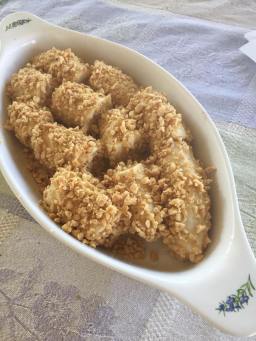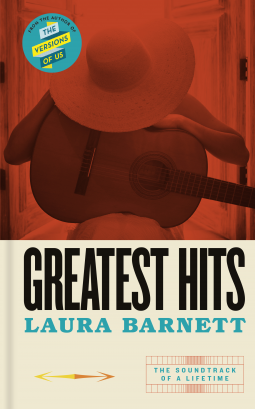We are a month and a day from leaving for Bulgaria. I know I will write about the threads of history that appear on dinner tables. In the meantime, I want to be grounded in that which I know is distinctively Kentucky. My university’s mascot, the Colonel, is borrowed loosely from the fried chicken king. My sister makes turkey dressing from the same pans our grandmother used to make sure the correct amounts of homemade stock are mixed together with cornbread.
 The one dish though that must appear at family celebrations is so incongruous with what outsiders might expect in Kentucky that strangers look askance at our table — banana croquettes. Think bananas rolled in homemade mayonnaise and crushed peanuts. Nothing about this dish should scream Kentucky, but it does. This is the dish my children insisted on taking to the church Thanksgiving potluck. This is the dish that must be there in order for it to be a true Whitehouse family holiday.
The one dish though that must appear at family celebrations is so incongruous with what outsiders might expect in Kentucky that strangers look askance at our table — banana croquettes. Think bananas rolled in homemade mayonnaise and crushed peanuts. Nothing about this dish should scream Kentucky, but it does. This is the dish my children insisted on taking to the church Thanksgiving potluck. This is the dish that must be there in order for it to be a true Whitehouse family holiday.
Nobody makes banana croquettes with homemade mayo any more. I’ve seen recipes swearing by Hellman’s, but one of my aunts discovered Marzetti Coleslaw Dressing and we never looked back.
The history of this dish appears to go back to 1870 when a forbearer of the Chiquita company introduced bananas to the United States. Over the next three decades, Americans fell in love with the fruit transported by rail from the central Americas to New Orleans and then Chicago. Kentucky food historian Maggie Green says 75 percent of American bananas made a stop in Fulton County’s icehouse, the only one along Chicago’s rail route.
This 1935 video from United Fruit Company disturbingly shows “virgin jungle being converted into a banana plantation.” It also announces, “In grandmother’s day, parents believed bananas caused stomach ache.” Then, a wizened family doctor prescribes bananas for a young patient with digestive issues. Vigorous athletes are paraded to tout the fruit’s energy producing benefits. The dutiful mother cuts up bananas with milk for her smiling son.
The Chiquita people put out cookbooks praising the benefits of corn flakes with milk and bananas. My father called this breakfast a childhood favorite.
It’s not hard to make the leap from milk to mayo, but the crushed peanuts thing is a stretch. General agreement amongst Southern cooks is that nuts must be halfway between powder and chunks, smaller pieces than the prepackaged store variety but still with some crunch. Getting to grind or crush the peanuts is an honor given to children.
I tried to develop theories about how the croquette combination came together. My mother said it had to be an African-American cook who introduced it to white Kentucky. For a long time, I thought it be a Caribbean dish put together by slaves who later were forced up the river to work in Kentucky tobacco fields. But the timing was somehow off … either dish had to be much younger or older than my poorly formed assumptions. Bananas first came from Africa after all. Then, I stumbled on this video of a woman making what she calls Kofi Broke Man: roasted plantains and red skinned peanuts. She says, “And this looks perfect. Just like the ones we buy by the roadside in Ghana.” The poor man’s dish provides a hearty feast even for someone with only a few coins in his pocket.
The connection between the Kentucky side dish and West African street food makes more sense to me than anything else I’ve read. My humble thanks to the African-American woman who somehow pulled these home staples all together.
The earliest family memory I can directly document of banana croquettes comes from the 1940s. My great uncle Hobert brought his wife Grace to Nelson County to meet his family before they headed back off to Montana. (How they got there is another story.) They were treated to day after day of feasts, each at a different house.
Six decades later, I went to Thanksgiving dinner at Grace’s house in Montana. Of course, I brought banana croquettes. She tasted it and said with smile, “I know this dish.” Yes, it had been served those gatherings when she was a bride. Grace pointed to the Marzetti’s bottle sitting on her counter, cocked her head and said, “I like your version better.” I don’t think I’ve ever been prouder of my cooking than at that moment.
Advertisements Share this:





